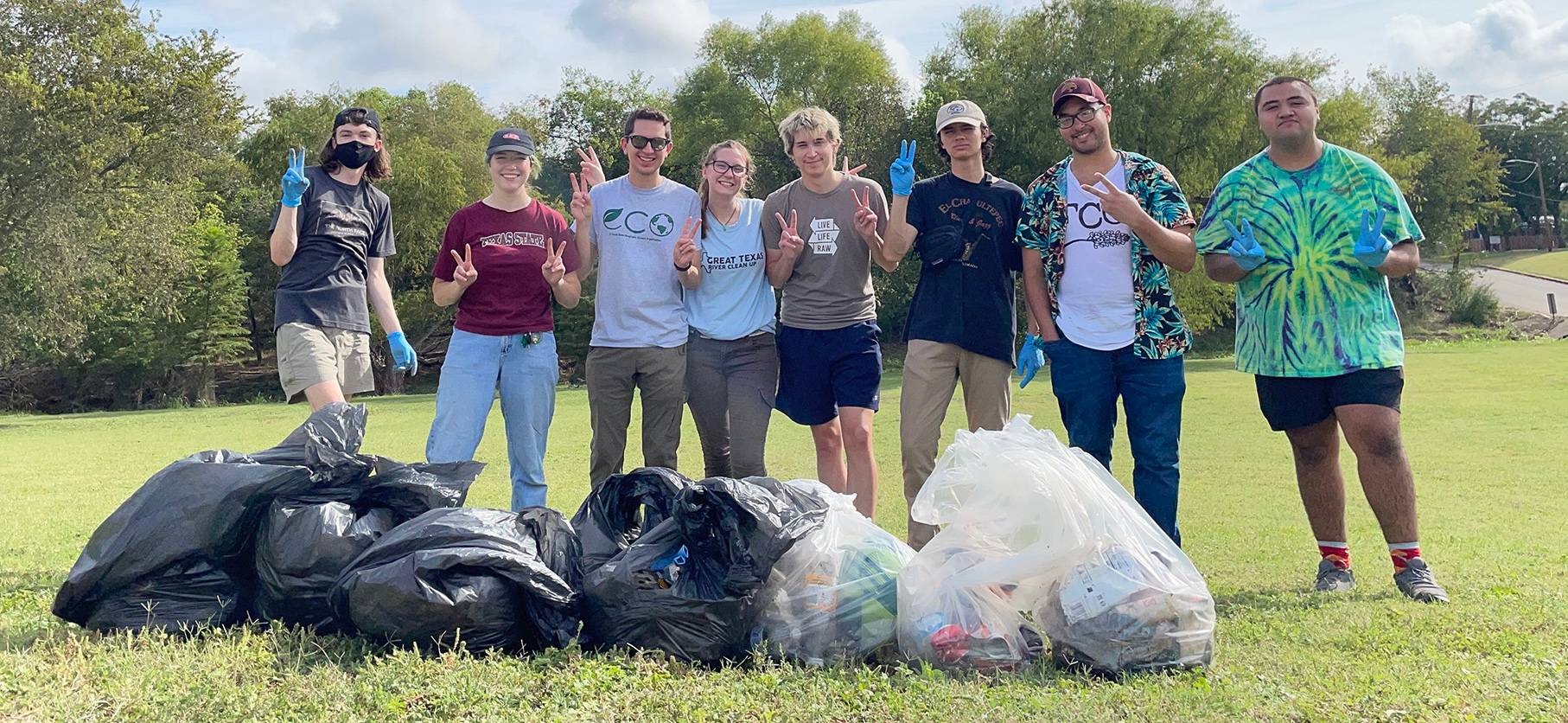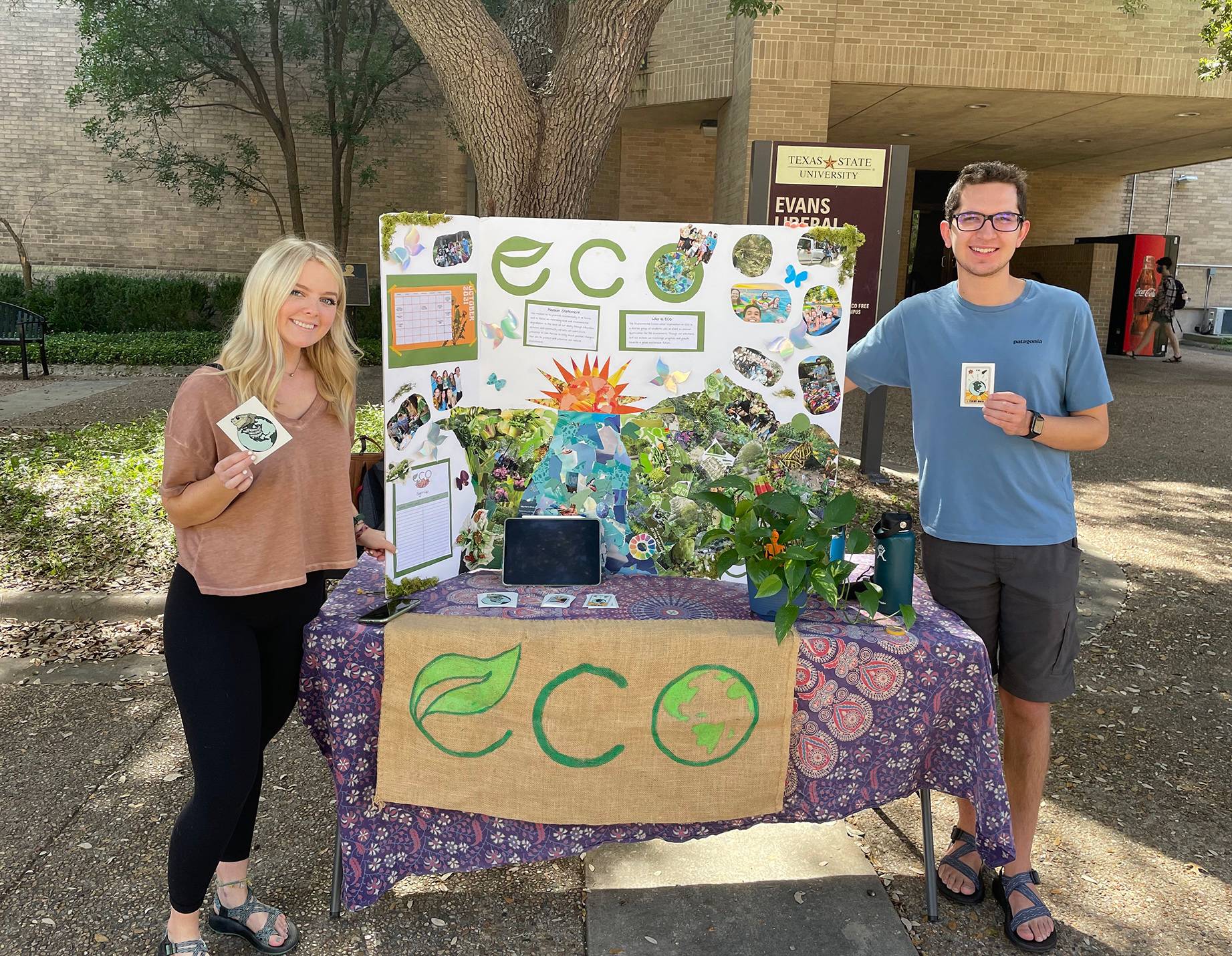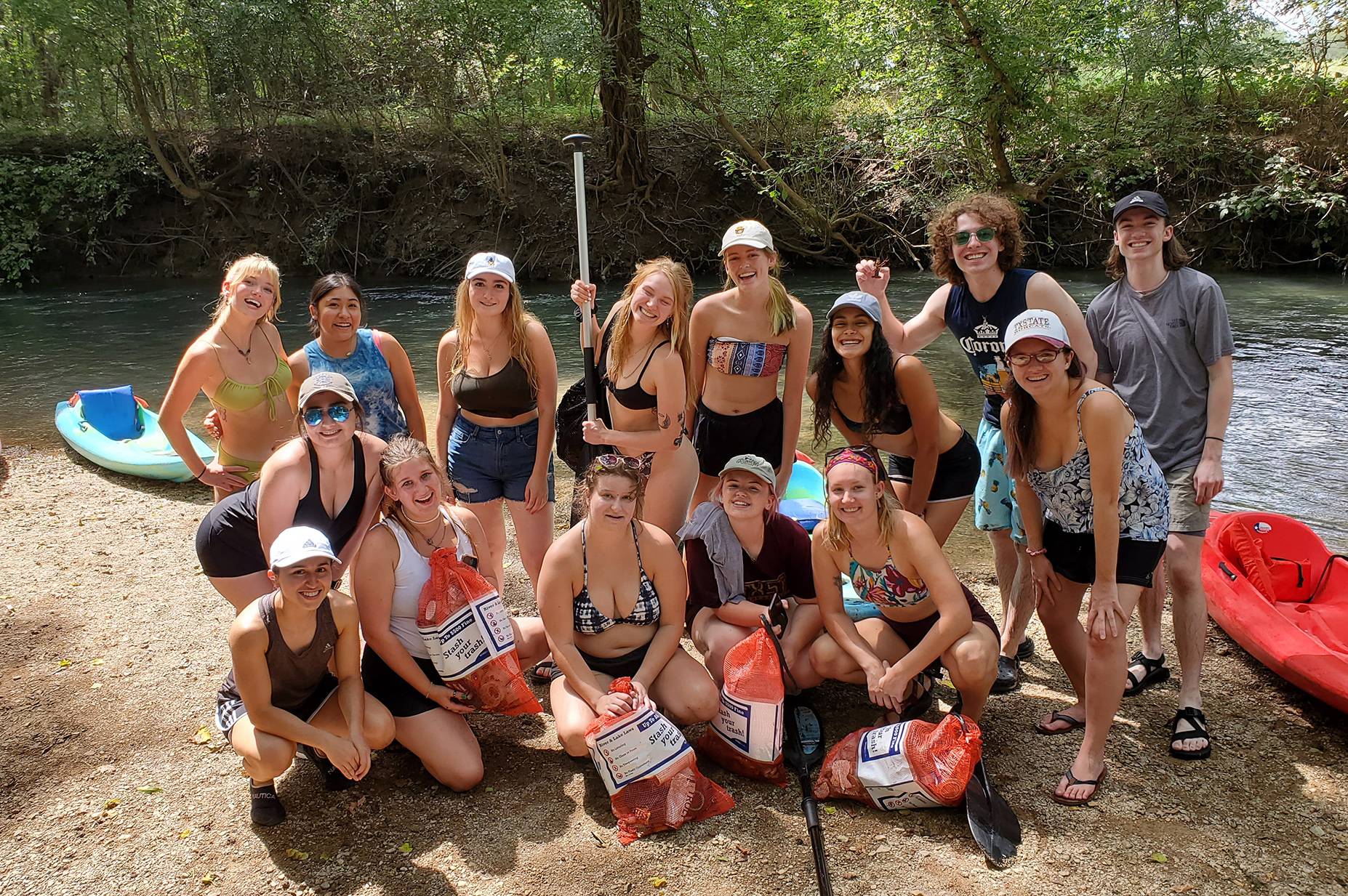Faculty and students unite to decrease Texas State's carbon footprint
Timia Cobb | October 20, 2021

The Texas State community is coming together to embrace sustainability and encourage the reduction of waste by faculty, staff, and students.
Dr. Rebecca Davio, associate professor of practice in the Department of Geography and director of Texas State’s Institute for Government Innovation, has taught solid waste management for six years. She is currently working on nine different projects relating to solid waste management with the Institute for Government Innovation. In her class, Davio teaches how humans unintentionally and continuously generate trash.
“It [the class] is giving us some experience and exposure to what it's really like within the state, counties and regions to deal with all the issues associated with solid waste management,” Davio said. “How do we get people to recycle more, how do we stop illegal dumping, how do we reduce the amount of waste that's generated?”
During the semester, Davio challenges her students to limit their solid waste, asking them to change how they treat trash and make it into a reusable or reducible resource. Davio said solid waste is materials that we all generate every day.
“If we start at breakfast and you have a banana or an apple, you can't eat the banana peel,” Davio said. “So, that's solid, it's tangible, we can touch it, so that's a waste.”

Solid waste can be broken down, reduced, or recycled using various methods. Davio believes the average person does not consider the amount of waste they are producing due to their perspective on what waste is, such as throwing away coffee grounds or food scraps, without thinking about composting instead. Solid waste can also be created by throwing away an old T-shirt rather than recycling it to a consignment shop or giving it to someone else.
“We have to change our mindset about solid waste, and we have to make it personal to us because that's really where this all starts. If somebody else isn't going to fix this issue then our landfills are filling up and that we're wasting valuable resources. We have to make that a personal decision,” Davio said.
Emma Parsley, sustainability studies graduate student, and Dr. Tina Cade, professor of Horticulture in the Department of Agricultural Sciences, built a survey using Qualtrics, a web-based survey tool, which collected responses from over 1,000 students, faculty, and staff who rated their opinions on sustainability efforts at Texas State.
The survey is part of Parsley’s graduate research project and is not complete but is expected to be published in December. The project could help advance campus development.
“It's definitely a community-involved project,” she said. “Sustainability is a very interdisciplinary field; it really encapsulates almost every single field possible. Sustainability is the intersection of any field you can name it, we're right there in the middle. This is the first time Texas State has ever done a survey like this, and we hope to use this data to help guide and plan the sustainability master plan for Texas State.”
The survey received mixed results. Some of the questions were unanimous, while others had conflicts amongst certain groups. The survey asked if increasing the sustainability tuition fee would be an important decision, however, most or many students did not see this as needed.
“There is already a lot of research, dedicated to environmental protection and conservation with Spring Lake and the San Marcos River being a part of our campus,” Parsley said. “So, those areas I would say Texas State is already so dedicated towards. We saw that recycling waste management and grounds control were more highly perceived areas as important. There are some other areas that weren't ranked as important, regarding the increasing the $1 fee students pay for the environmental fee.”

Sebastian Whelan, a sustainability researcher for the Environmental Conservation Organization (ECO) at Texas State, believes educating more students on the small things they can do to reduce their carbon footprint on campus is necessary. “Students can get involved in orgs that advocate for cleaner alternatives, do clean ups, or composting,” he said. “Just a few things that I’ve made a part of my everyday routine include taking a reusable water bottle to campus or take the bus, which reduces traffic and emissions. A great resource is the university’s Office of Sustainability, as they host events and meetings to get student feedback on environmental issues.”
ECO is a community and service organization that focuses on a broad range of sustainable practices, from plant-based eating to gardening to outdoor recreation. The $1 sustainability fee was introduced by ECO when the organization was known as the National Association of Environmental Professionals (NAEP). Whelan said that ECO is hoping to see the fee increase to $2 in the future.
“It’s a topic that I feel like doesn’t get talked about enough,” Whelan said. “Each student pays $1 each semester as part of their tuition. That dollar is combined and managed by the Environmental Service Committee, a university organization that funds environmental-focused projects. The service fee has helped to fund reusable water bottle filling stations, more efficient lighting, and other beautification efforts on campus. The environmental service fee is capped by the state government for public universities but we’re hoping to see that fee increase to $2 in the coming years to make a greater impact."
It is a similarity that Davio, Parsley, Hines and Whelan share is their compassion to raise awareness on the many ways the Texas State community can reduce its carbon footprint and waste produced. Parsley believes this movement for change might start small but grow into a global effort.
“Education is the key to help solve any problem. Constantly educating yourself and being aware of how we as individuals play a huge role in our community, the state of Texas, United States and even globally, is how we can all make an imprint,” Parsley said.
Share this article
For more information, contact University Communications:Jayme Blaschke, 512-245-2555 Sandy Pantlik, 512-245-2922 |